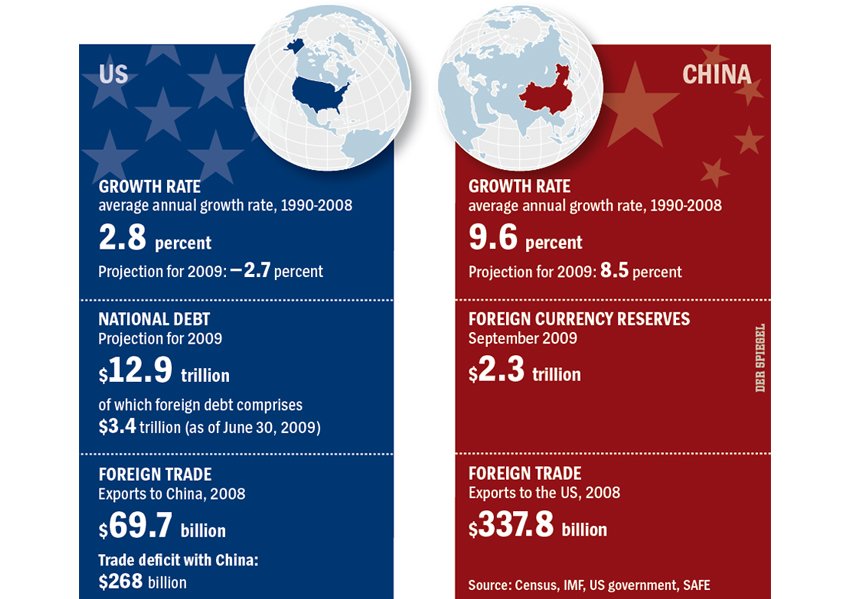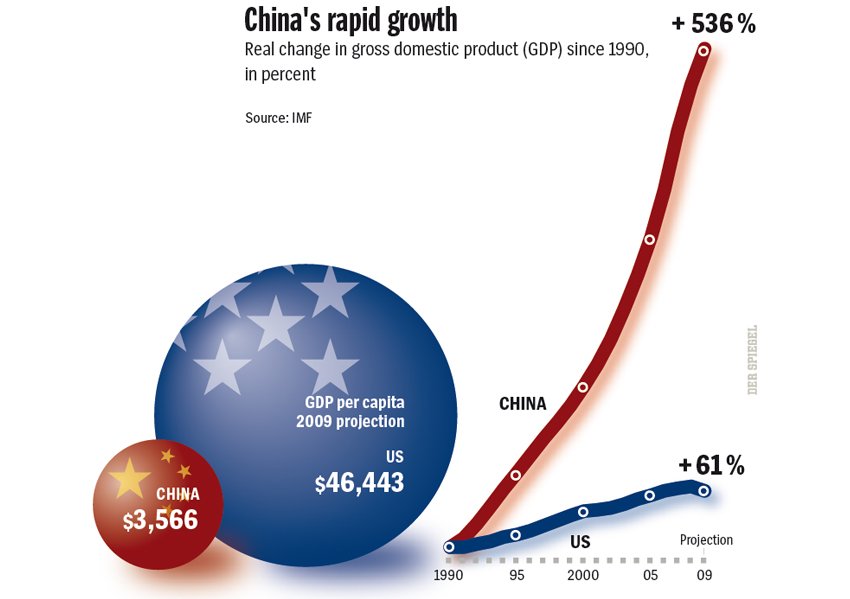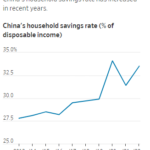After the credit crisis last year, China is increasingly focusing more on developing markets for growth. Chinese companies have been making large investments especially in developing resource-rich Middle East and Africa.
An interesting article in the Der Spiegel titled Reluctant Partners – Global Crisis Makes US More Dependent on China than Ever discusses the trade relationship between the USA and China and the rising power of China.
From the article:
When US President Barack Obama visits China this weekend, he will encounter a rival that sees the financial crisis as more of an opportunity than a threat. America, on the other hand, has been fundamentally weakened by the global crunch — and is more dependent on the goodwill of the rising superpower than ever.
The scientists at the National University of Defense Technology in Changsha, China, had plenty to celebrate: They had developed a supercomputer that could perform more than a quadrillion calculations per second.
The announcement, released just in time for US President Barack Obama’s visit to China this weekend, had symbolic value: With their new computer, dubbed “Tianhe” (“Milky Way”), the Chinese claim they will be the first country to become a direct rival to the superpower.
China is bursting with self-confidence. The new world power sees itself as a winner in the financial crisis, with its economy growing by an impressive 9 percent in the third quarter, while the economies of the West struggle to recover from a deep recession. And while the Americans are focused on their own problems, China is expanding its influence, both in Asia and among resource-rich African countries.”
Writing about the American consumption of Chinese goods the authors write:
“Suddenly the crisis hit China, whose economy had been oriented almost completely toward the United States. In Dongguan, home to one low-wage factory after the next, entire neighborhoods have died out. “We have lost a third of our orders,” says Li Zhaoyuan, who owns Dongguan Singyan, a company that makes metal parts. He has laid off 40 percent of his workforce.
The remaining workers sit at outdated machines on the two floors of the plant, punching and pressing pieces of metal into objects like fishhooks and housings for Motorola mobile phones. “We used to work 24 hours a day,” says Li, “but now one eight-hour shift is enough.” He doesn’t believe that American consumers will soon be buying Chinese products as enthusiastically as they did before the crisis. He prefers to follow the advice of the strategists in Beijing, namely to focus on new markets in Asia, the Middle East and Africa.”
I agree with Mr.Li 100%. The once free-spending American consumer will not be going back to old ways any time soon with real wages in the private sector going down and rising unemployment levels. The American consumer is in belt-tightening mode now. Most of the Chinese made cheap goods were bought with credit. As consumer shop less credit growth has slowed for many months consecutively. China’s strategists have clearly understood that they need to rely less on America as the main export destination and focus more on emerging markets.
Chart – Key Economic Figures Comparison between China and USA
Click to Expand
Chart – China and USA GDP Growth
Source: Der Spiegel
While China’s economic growth since 1990 is astonishing, China has a long way to go before it can beat or overtake the US economy. Despite the strong growth the Chinese economy still is relatively small compared to the US economy. So in that sense it may be premature to call China as the rising superpower.
Emerging markets in Asia, Africa, etc. may not be able consume as much of the Chinese goods as the US did simple because consumers in those markets do not have the purchasing power as Americans do. For example, it would be wrong to assume that many Asians such as Indonesians, Indians, Vietnamese, etc. would spend as frivolously as Americans did in buying Chinese products. So the answer to my title question is that is too early to tell whether China will be able to successfully replace USA with new markets in Asia, Africa and the Middle East as its main exports destination.



